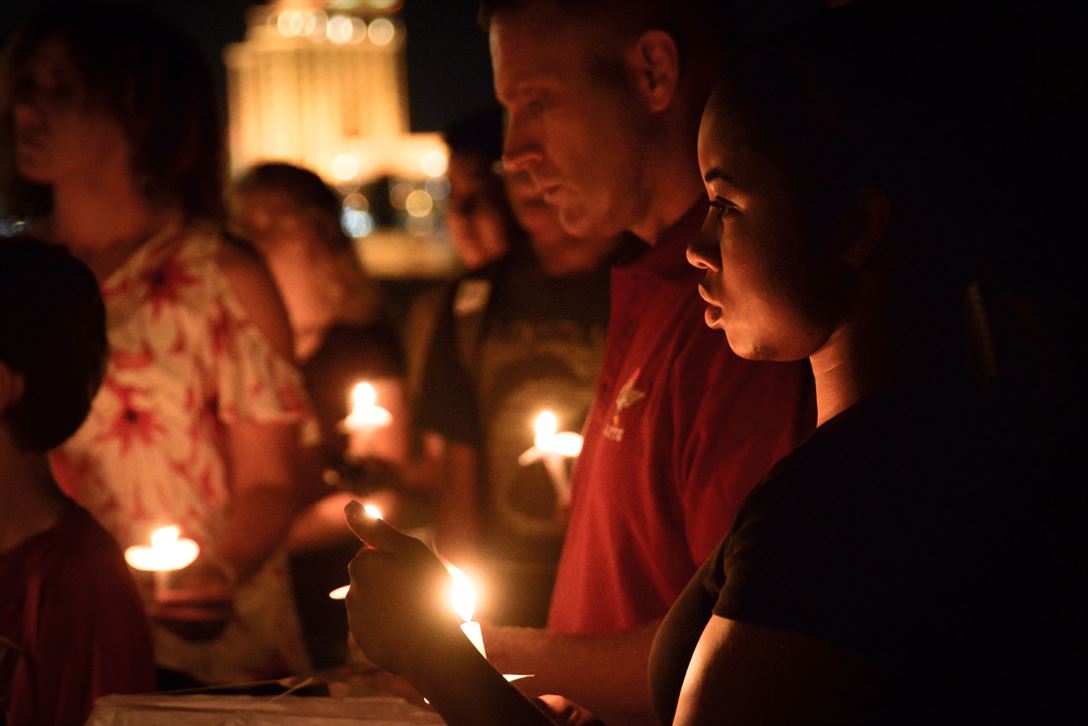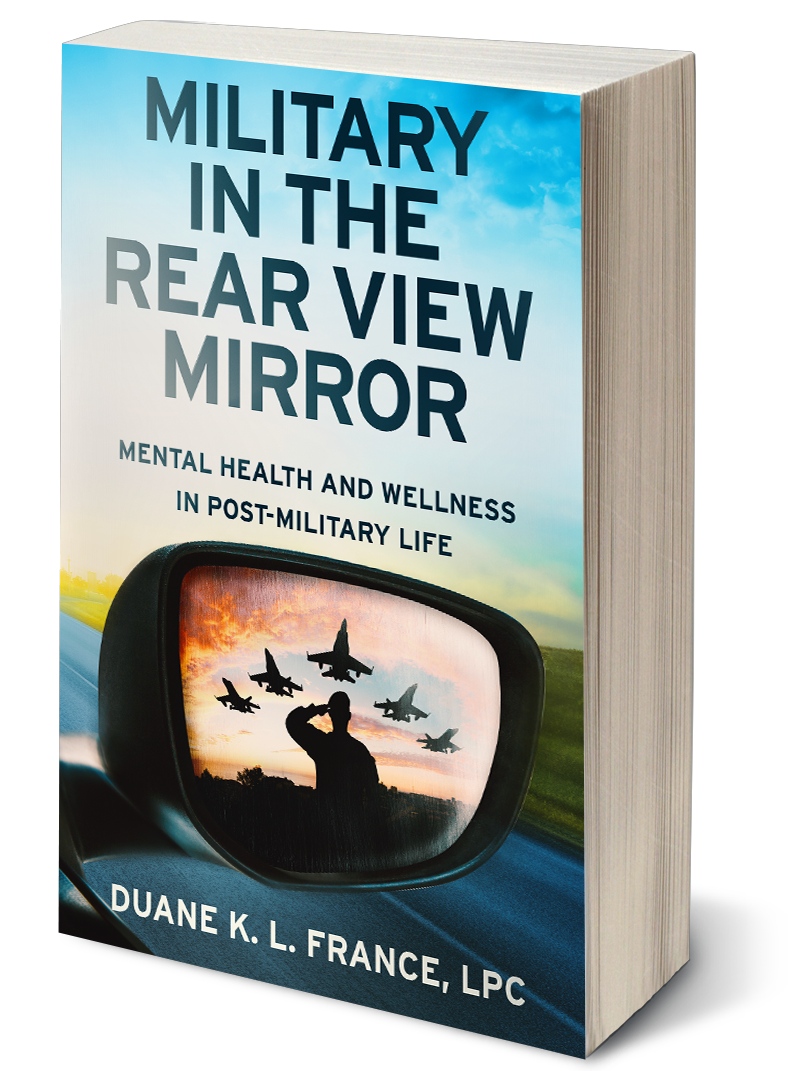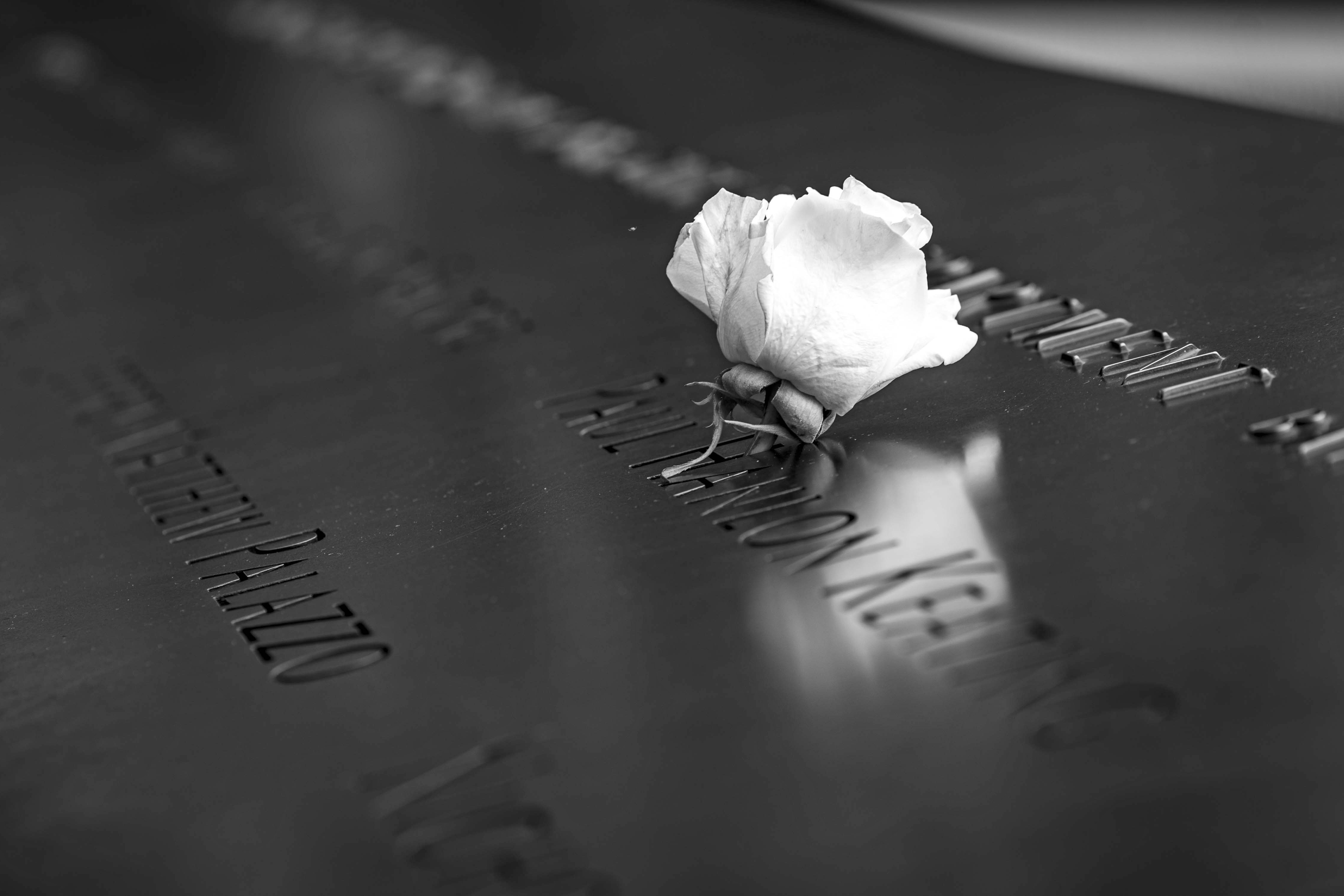
Airmen and their families hold candles during Lanterns for Lives on the Biloxi, Mississippi beachfront, Sept. 29, 2017, an event to honor the lives of those who committed suicide. Air Force photo by Tech. Sgt. Ryan Crane
This article was an original op-ed published in the Colorado Springs Gazette on June 20th, 2018. You can see the original article here.
According to a comprehensive analysis of veteran suicides, an average of 20 active duty military service members, non-activated Guard and Reserve service members, and veterans die by suicide every day. While many who have served know that they have lost as many, or more, fellow service members to suicide than they have to combat, few outside of the veteran’s immediate network know their names, their stories.
We know the names of one of the veterans who took their own life in Colorado Springs on April 24, 2018: Lee Cole.
While the nation and the world were shocked and saddened by the deaths of Kate Spade and Anthony Bourdain, and rightly so, the passing of over 20 veterans a day is so commonplace that it goes unnoticed. The crisis has reached epidemic proportions, however, and is a crisis that is being addressed on several different fronts, with seemingly little impact.
Colorado Springs is proud of it’s military connection, and should be. It is a coveted destination for many branches of the military, is the only county in the United States with five military installations within it’s geographic boundaries, and has a long history of military support and service. With such a high concentration of current and former service members, however, comes a greater challenge: addressing the mental health and wellness needs of those service members, and their families, impacted by over fifteen years of combat.
As striking, and heartbreaking, as the subject of military and veteran suicide is, this epidemic is indicative of an even greater underlying problem: utilization of and access to quality mental health care. Even after significant efforts both in and out of the military to reduce the stigma against seeking mental health treatment, veterans are not utilizing available services at the rate necessary. When veterans do choose to reach out for support for mental health treatment, they need access to licensed clinical mental health professionals who understand the unique nature of the military.
Colorado Springs is uniquely qualified to provide that support; the number of mental health resources in the area is impressive and significant. From services through the UCCS Veteran Health and Trauma Clinic, to large outpatient mental health clinics such as the Family Care Center, and the Department of Veterans Affairs mental health counseling programs offered through the Lindstrom Clinic and the Colorado Springs Vet Center, the amount of culturally competent licensed professionals in the Pikes Peak region is greater than that of many other communities.
And yet we continue to lose our current and former service members to suicide.
As a colleague, Tony Williams, often says, “Suicide is a national problem with a local solution.” That solution is our community. The Department of Veterans Affairs cannot solve the problem alone; of the twenty current and former service members that took their own lives in 2015, only six had accessed VA services in the previous twenty-four months before their deaths.
There are likely numerous reasons why so few are accessing services. Ineligibility for VA services is one; a former service member with discharge designated as other than honorable, “bad paper” veterans, are unable to access mental health services at the rate and frequency of those who have an honorable discharge, even though the reason for the characterization of discharge may have been due to the service member’s mental health condition. Other restrictions include those service members who do not have a service-connected disability and make over a certain amount of annual salary. Non-VA using veterans may also include those who do not wish to access care at the VA, but still need it. In these situations, it is up to the community to take care of those who sacrificed much on our behalf, and we should partner with any and every agency we can to reduce the barriers that exist, both within the veteran’s mind and within our community.
Good veteran mental health is the basis of the post-military life that all former military service members desire and deserve. If we, as a community and as individuals, do not do our part to break through the stigma against seeking mental health counseling, then the number of veteran suicides will continue to maintain at their current levels.
As a retired Army Noncommissioned Officer, combat veteran of both Iraq and Afghanistan, and clinical mental health counselor, I do not want to see even one more of my brothers and sisters in arms suffer in their post-military lives. It is up to me, and us, to make a difference.
Enjoy this post? Get more like it by subscribing to Head Space and Timing on Messenger



